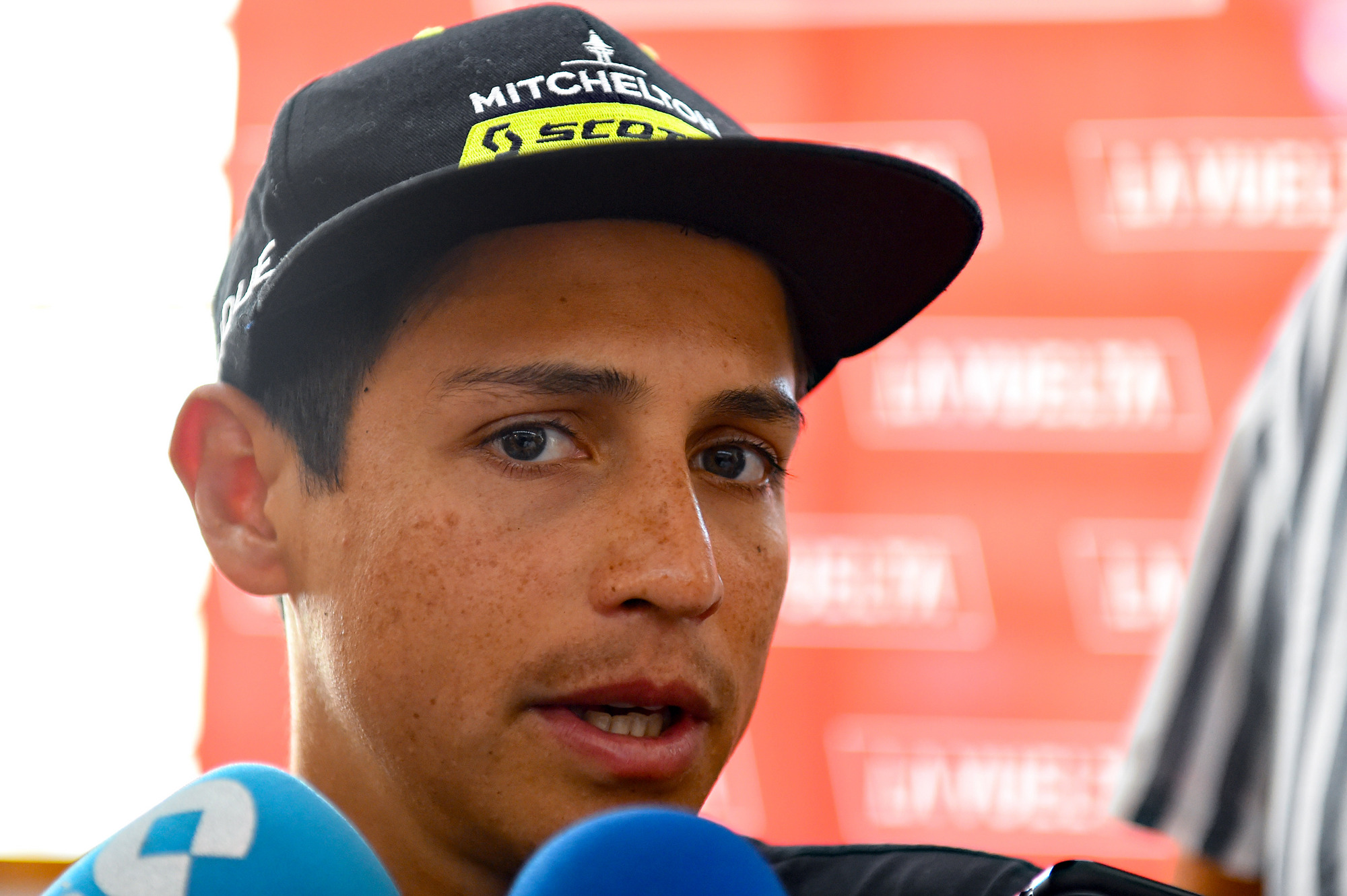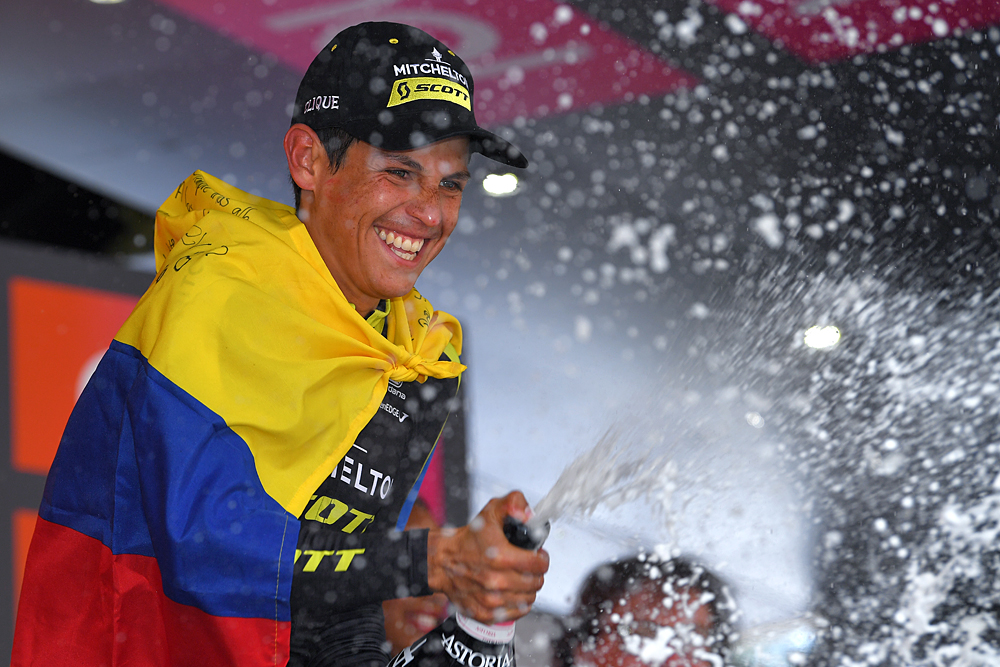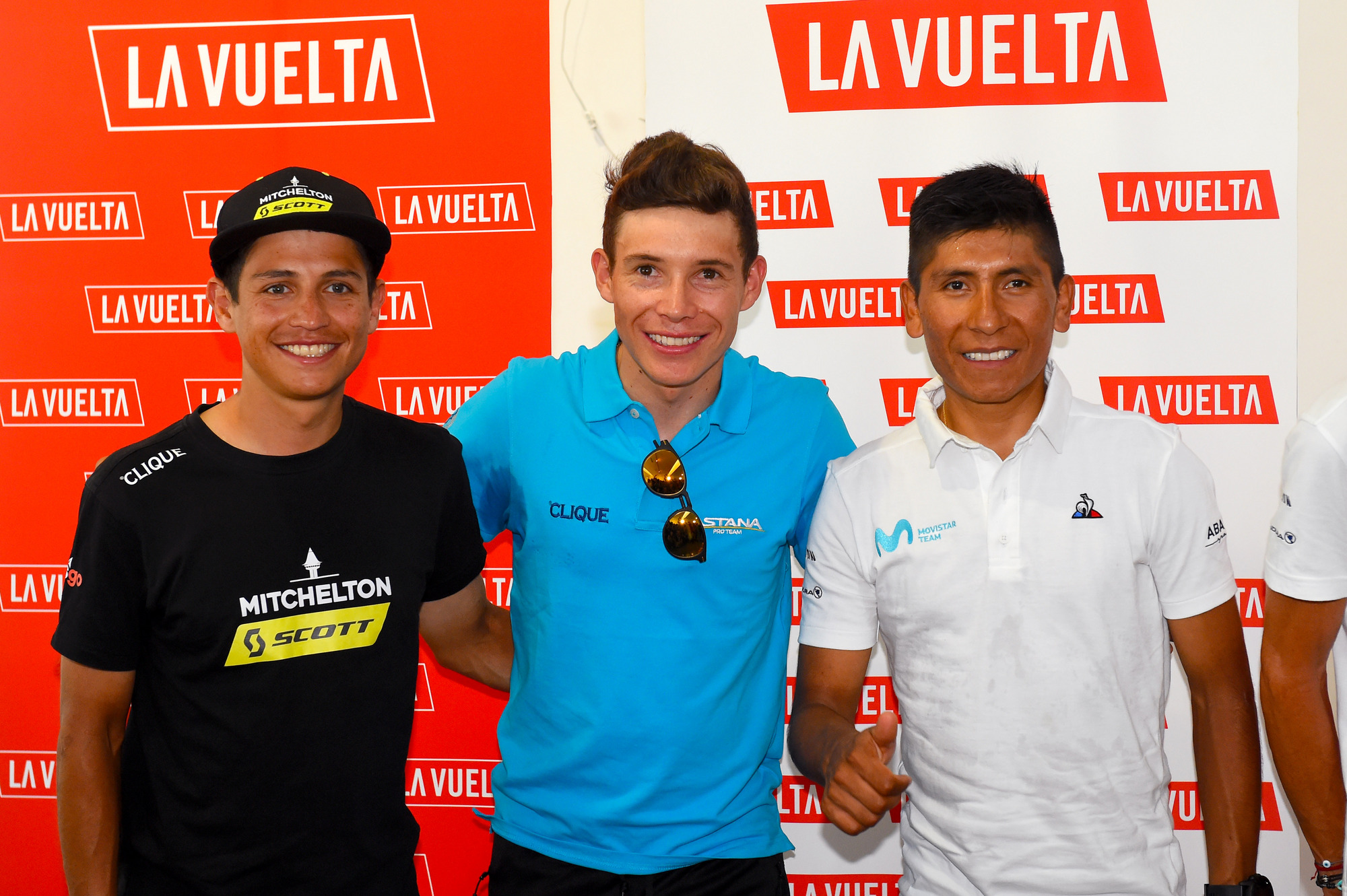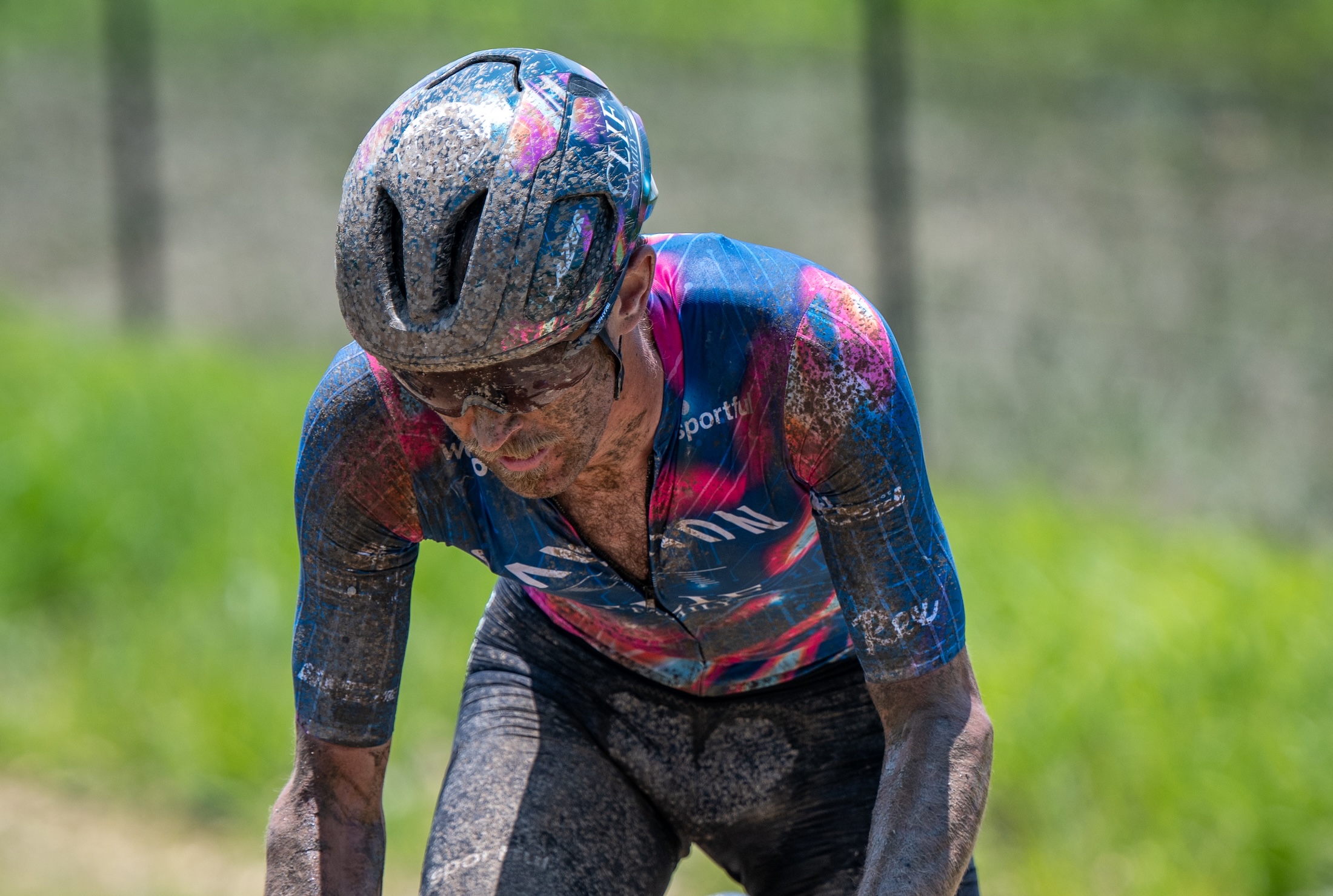Chaves on the comeback trail at Vuelta a Espana
Mitchelton-Scott leader coy on rumours of his sterling form
The latest race content, interviews, features, reviews and expert buying guides, direct to your inbox!
You are now subscribed
Your newsletter sign-up was successful



Rumour mills about riders being in top condition traditionally go into overdrive before the start of a Grand Tour, but when Esteban Chaves was asked on Thursday if it was true, as some were saying, that he is in form for this Vuelta a Espana as strong as when he finished third in the 2016, he fired back straight, with his typically friendly smile: "I hope so".
It looks increasingly evident that the Mitchelton-Scott leader's tough second half of 2018 after falling ill in the Giro d'Italia, which saw his career put on hold for over six months, is now definitively behind him. Certainly, a stage win in the Italian Grand Tour's third week this May strongly suggested the Colombian racer is moving back on track.
So at the Vuelta, four months further on where - in the absence of defending champion Simon Yates and his brother Adam - he is sole leader for Mitchelton-Scott, is Chaves looking to step up his game even further, as the pre-race rumour mill insists he is capable of doing?
"I hope so," Chaves said in Thursday's press conference with the other top Vuelta leaders. "Things were interrupted last year for reasons I couldn't control. The most important thing is to go on living the dream."
"Just being here in the Vuelta a España press conference with all the big names is something very special. You have to enjoy that."
Rather than picking out one key rival in the upcoming Vuelta, Chaves reasoned "there are quite a few. Obviously, [Primoz] Roglic (Jumbo-Visma) is in good shape, the time trial suits him well and his team is, I think, the strongest of all of them. But the Vuelta always produces surprises, it's what I like about this race."
"It's also a race I like because there's a big Colombian community here in Spain, we speak the same language and you hear the same language a lot more in the Vuelta peloton as there are more Spanish riders here."
The latest race content, interviews, features, reviews and expert buying guides, direct to your inbox!
"So it's all very similar - I like the Spanish hot weather and the customs people have here, too, getting up late and going to bed late, having a few tapas and a couple of beers on the beach. The food in Spain is very good and the paellas [rice dishes] here in Valencia are excellent!"
It's not just the social side of things for times when he's not racing, as well as the language and fellow-Colombians, that draw Chaves to Spain.
As Chaves pointed out, his Grand Tour racing career began in the Vuelta in 2014, and it was in the same race, in 2015, where he won his first Grand Tour stages and wore his first Grand Tour leader's jersey, too.
On top of that, the Vuelta race start in Torrevieja is a scant 35 or 40 kilometres from Orihuela, the Spanish town where his comeback this season began in the Volta a la Comunitat Valenciana, in early February this year. Six months on, geographically he might be back close to where he started this year, but physically and mentally, he's clearly in a very different place altogether.
"If you reflect about things like that, it does make it all more special being here," Chaves said. "And it's a reminder too that we have to enjoy this. Sometimes we [the riders in the peloton] forget we're living the dream."
Alasdair Fotheringham has been reporting on cycling since 1991. He has covered every Tour de France since 1992 bar one, as well as numerous other bike races of all shapes and sizes, ranging from the Olympic Games in 2008 to the now sadly defunct Subida a Urkiola hill climb in Spain. As well as working for Cyclingnews, he has also written for The Independent, The Guardian, ProCycling, The Express and Reuters.

